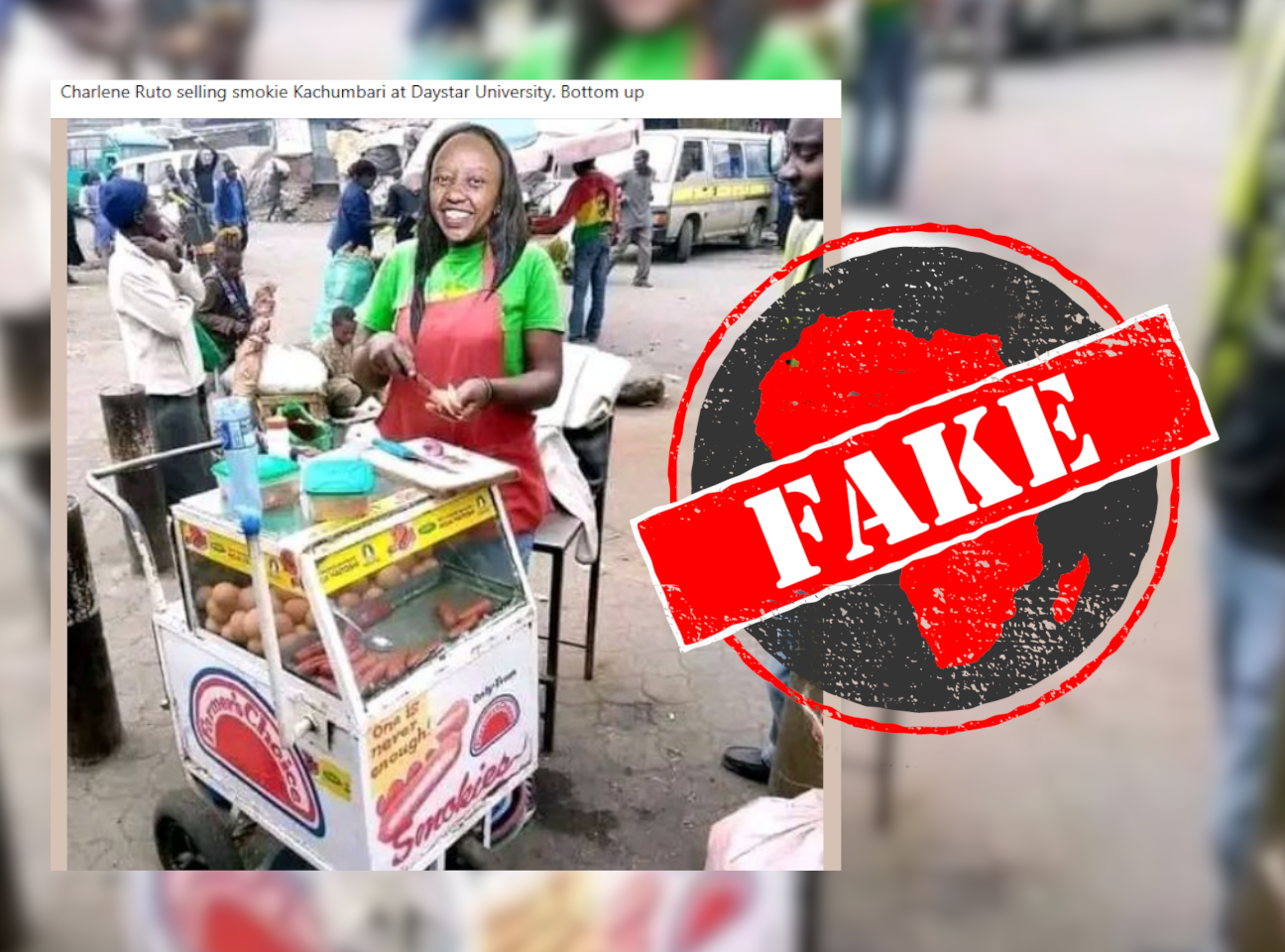IN SHORT: When Kenyan politician’s daughter Charlene Ruto claimed in a viral video to have sold a popular street food to support herself while at university, social media in Kenya was mostly disbelieving. But a photo of a smokie vendor neither proves nor disproves her claim.
An image doing the rounds on Facebook in Kenya appears to show a woman who resembles Kenyan president William Ruto’s daughter Charlene Ruto selling smoked sausages from a cart.
Facebook users who posted the image claimed it shows Ruto working as a vendor when she was a student at Daystar University, a university in Machakos county in Kenya, despite her being the daughter of a high-ranking politician.
“Charlene Ruto back then when she was selling smokie pasua to earn an extra shilling during her time at Daystar University while her Father was the Deputy President of Kenya,” one Facebook user captioned the image.
Smoked sausages are popularly known as “smokies” in Kenya. “Smokie pasua” is Kiswahili slang for a sausage that has been sliced in half and filled with tomato salad.
The image is being shared shortly after Ruto claimed she used to sell smokies while at university and that her father encouraged her. A number of social media users have ridiculed this, finding it hard to believe.
The image has been posted here, here, here and here.
But does the image show Charlene Ruto selling sausages? We checked.

Photo altered
A reverse image search of the image reveals it was first published on the Nation.Africa website. It is of a smokie vendor identified by Nation.Africa as Damaris Ndinda from Shauri Moyo estate in Nairobi.
Comparing the two images, it’s clear that Ruto’s face has been photoshopped onto the original photo. Whether she sold smokies or not while at university, this is not a photo of Charlene Ruto.
Republish our content for free
For publishers: what to do if your post is rated false
A fact-checker has rated your Facebook or Instagram post as “false”, “altered”, “partly false” or “missing context”. This could have serious consequences. What do you do?
Click on our guide for the steps you should follow.
Publishers guideAfrica Check teams up with Facebook
Africa Check is a partner in Meta's third-party fact-checking programme to help stop the spread of false information on social media.
The content we rate as “false” will be downgraded on Facebook and Instagram. This means fewer people will see it.
You can also help identify false information on Facebook. This guide explains how.




Add new comment